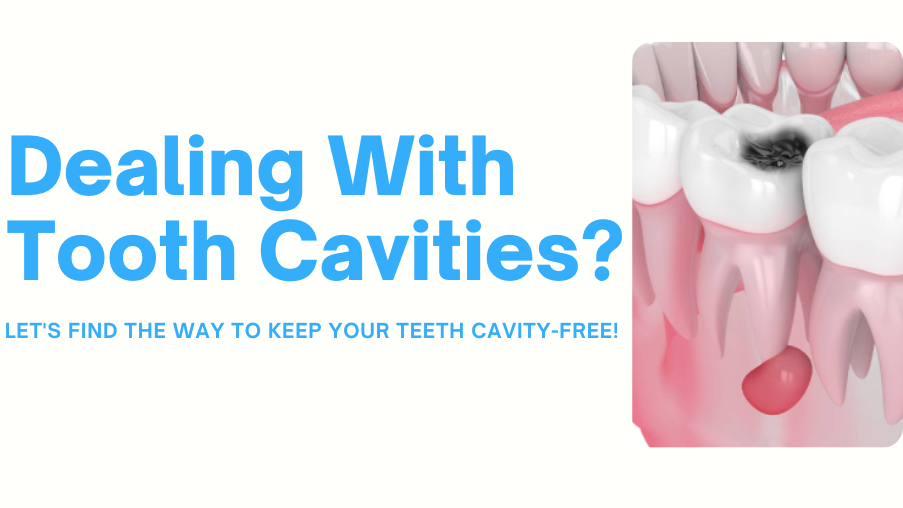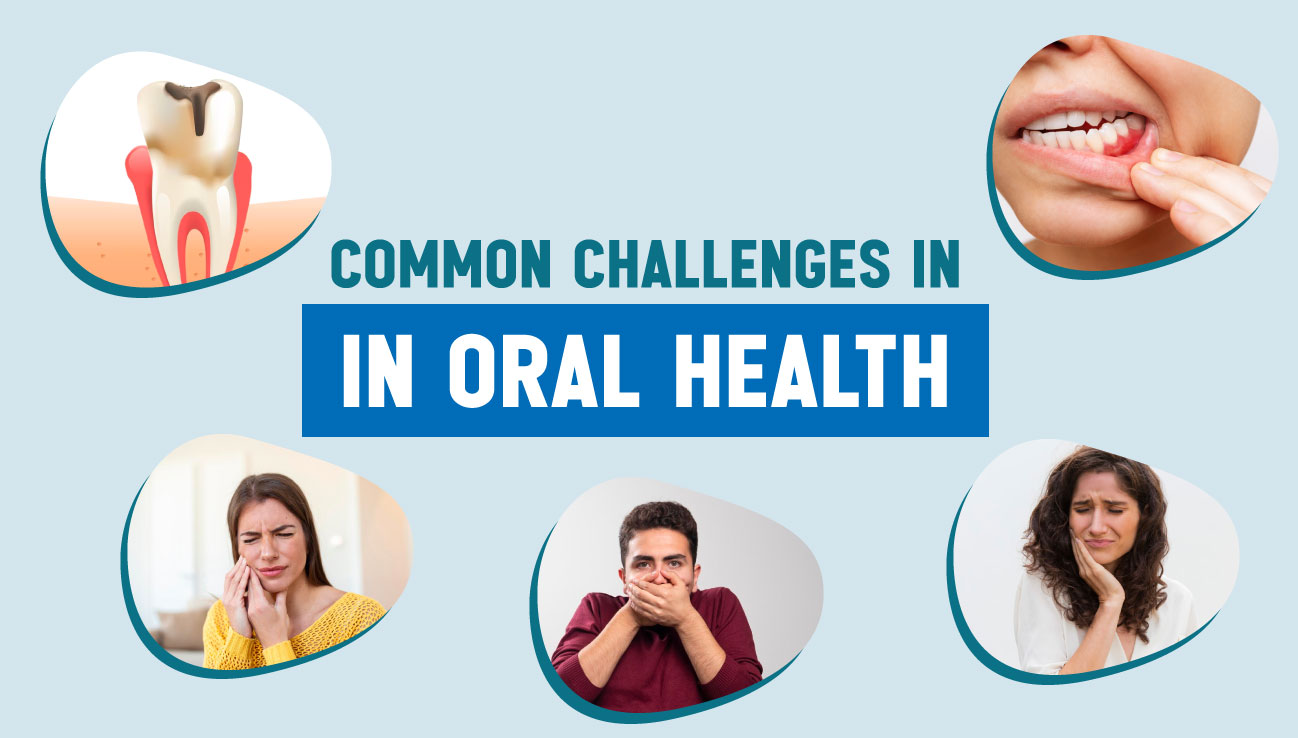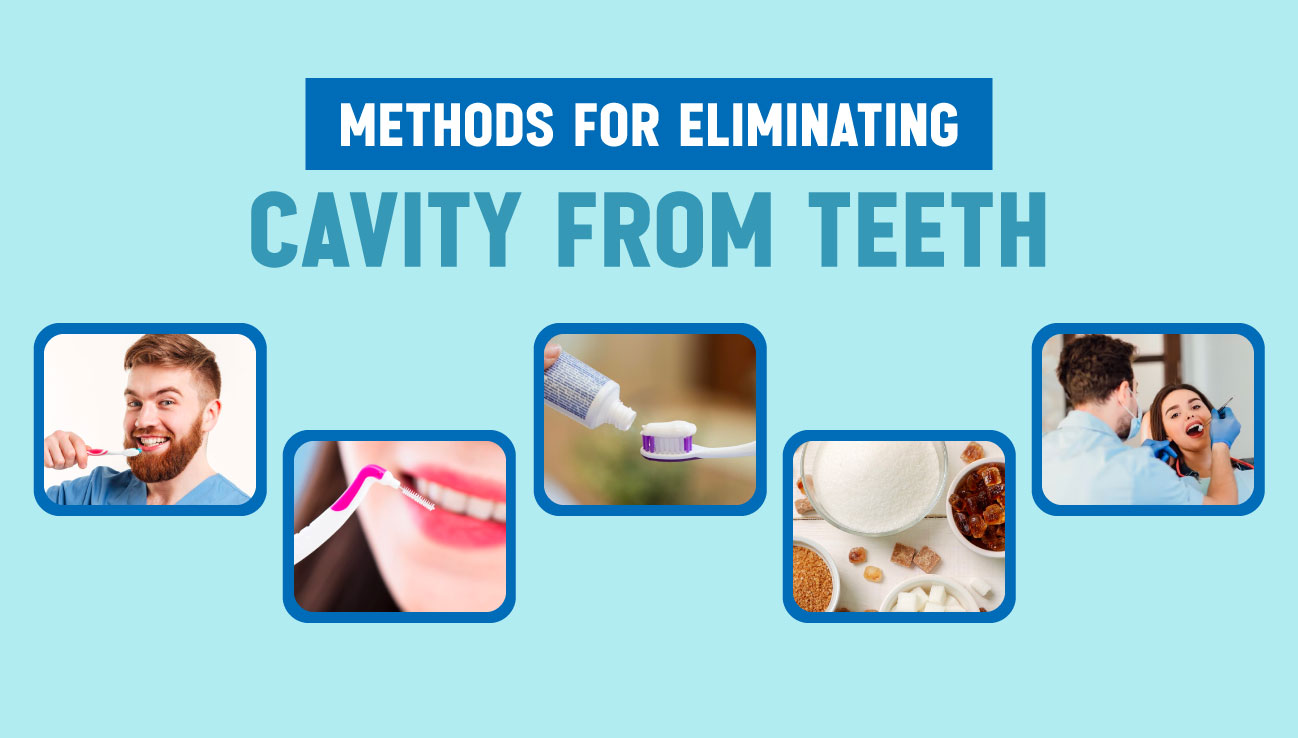
Stim Brush | 06 Oct, 2023
Beating Tooth Cavity: Roadmap To Get Cavity-Free Teeth!
Explore the secrets of achieving tooth cavity free, demystifying dental care without drowning you in dental jargon or complex marketing promises. Think of it as a friendly chat between pals, where we'll share practical tips, bust a few myths, and arm you with the knowledge you need to keep those pearly whites intact. So, let's embark on this oral adventure together and uncover the path to get tooth cavity free, one step at a time.
Table of Contents:
► How To Remove Cavity From Teeth? - Tips ► Understanding Tooth Cavity ► Tooth Cavity Prevention for Different Age Groups ► Common Dental Problems ► The Importance Of Oral Health
How To Remove Cavity From Teeth?
To ensure healthy teeth without cavities, it is vital to maintain good oral hygiene. Cavities result from the accumulation of plaque on teeth, which gradually deteriorates the enamel and causes decay. Below are some tips to remove cavity from teeth.
- Brushing
Brush your teeth twice a day, for at least two minutes each. Brushing helps to remove plaque and food particles that can cause tooth cavity.
- Interdental Cleaning
Interdental areas are prone to accumulating food particles, bacteria, and plaque, which can cause bad breath, gum disease, and tooth decay. Interdental cleaning is important for maintaining good oral health as it helps to remove the plaque and food particles that brushing alone cannot reach. It also helps to stimulate the gums and improve blood circulation, which can keep them healthy.
- Use fluoride toothpaste
Fluoride is a mineral that helps to strengthen tooth enamel and can help to prevent tooth cavity. Using toothpaste that contains fluoride, twice a day can help in preventing cavities.
- Limit sugary and acidic foods and drinks
Sugary and acidic foods and drinks can cause the bacteria in your mouth to produce acid, which can erode tooth enamel and lead to tooth cavity. Try to limit your consumption of these types of foods and drinks, or at least rinse your mouth with water after consuming them.
To learn more about the impact of diabetes and sugar on oral health, check out our in-depth blog post
Visit your dentist regularly
Regular dental check-ups and cleanings are important for maintaining good oral health. Your dentist can detect and treat tooth cavity before they become a bigger problem.
By following these tips, you can reduce your risk of developing tooth cavity and enjoy a healthy, cavity-free smile.
Understanding Tooth Cavity
What are cavities?
Cavities, also known as dental caries or tooth decay, are small holes or openings that form on the surface of your teeth. These tiny breaches in your tooth's protective enamel can gradually become larger if left untreated, leading to more significant dental problems. Tooth Cavities are incredibly common and can affect individuals of all ages.
Causes of Tooth Cavities
Tooth cavity are primarily caused by a combination of factors:
- Bacteria: The mouth is home to numerous bacteria, some of which produce acids when they feed on sugary and starchy food particles left on your teeth.
- Poor Oral Hygiene: Inadequate brushing and flossing allow the accumulation of plaque, a sticky film of bacteria, and food debris, which can erode tooth enamel.
- Dietary Habits: Excessive consumption of sugary and acidic foods and beverages can accelerate tooth decay. [Delve deeper into a healthier diet for gums and teeth]
- Dry Mouth: A lack of saliva, which naturally helps neutralize acids and remineralize teeth, can contribute to cavity formation. [To combat dry mouth and protect your teeth, buy Saleva Mouthwash]
- Genetics: Some individuals may be more genetically predisposed to cavities due to variations in their tooth enamel strength and saliva composition.
Signs and symptoms Of Tooth Cavity
The tooth cavity often starts small and may not cause noticeable discomfort initially. However, as they progress, you may experience:
- Tooth Sensitivity: Increased sensitivity to hot, cold, sweet, or sour foods and drinks.
- Toothache: Persistent or intermittent pain in the affected tooth.
- Visible Holes: You might see pits or holes on the tooth's surface.
- White Spots: Early cavities can manifest as white spots on your teeth, indicating enamel demineralization.
Tooth Cavity Prevention for Different Age Groups
Oral health isn't one-size-fits-all, and the strategies to prevent tooth cavity vary across different stages of life. Let's explore how you can keep those smiles radiant at every age.
Children (Ages 0-12)
- Teach them good oral hygiene habits early, including proper brushing and flossing. [Explore our guide on teaching good oral habits to children]
- Limit sugary snacks and drinks.
- Consider dental sealants to protect their newly erupted molars.
Adolescents (Ages 13-19)
- Encourage healthy dietary choices.
- Emphasize the importance of consistent oral care during busy teen years.
- Discuss the risks of tobacco and alcohol on oral health.
Adults (Ages 20-64)
- Maintain a balanced diet and stay hydrated.
- Continue regular dental check-ups for early tooth cavity detection.
- Be mindful of teeth grinding, stress-related oral health issues, and tobacco use.
Seniors (Ages 65+)
- Address age-related oral health concerns, such as dry mouth and gum disease.
- Consider denture care and regular check-ups for any dental prosthetics.
- Focus on overall health to maintain oral well-being.
By tailoring tooth cavity prevention efforts to specific age groups, we can ensure that everyone enjoys a lifetime of healthy smiles.

Common Dental Problems
Your smile is your signature, and it deserves to shine brilliantly. But sometimes, life throws a curveball, and dental problems can cloud that radiance.
Let's shed light on the usual suspects, those common dental issues that many of us face.
- Tooth Cavities:
The tiny troublemakers that create holes in your teeth. Caused by plaque buildup and sugary indulgences, cavities can lead to pain and discomfort.
- Gum Disease
Gingivitis and periodontitis can wreak havoc on your gums and even your overall health. Swollen, bleeding gums are early signs to watch out for.
Also Read: Know How To Stop Bleeding From Gums While Brushing Immediately?
- Tooth Sensitivity
That sharp jolt of pain when you sip something cold or hot – it's often due to tooth sensitivity. Enamel erosion is usually the culprit.
- Bad Breath (Halitosis)
Embarrassing and pesky, bad breath can be a result of poor oral hygiene, but it can also signal underlying issues like gum disease or infections.
- Toothaches
A persistent toothache can disrupt your life. It may stem from various causes, including decay, infection, or a damaged tooth.
Understanding these common dental foes is the first step in defending your oral health.
The Importance Of Oral Health
Oral health is the cornerstone of our daily lives, impacting not only our ability to enjoy food but also our confidence, speech, and even our systemic health.
Think about it. When you maintain your oral health, you're not just preventing tooth cavity and gum disease; you're taking a proactive step towards safeguarding your heart, reducing the risk of diabetes complications, and promoting a healthier, happier you.
But it's not just about the big health picture; it's the little things too. It's the confidence to flash a radiant smile in photos, the joy of savoring your favorite treats without hesitation, and the freedom to express yourself without worry.
So, let's unlock the power of your smile and discover the myriad ways in which oral health and free from tooth cavity that enriches our lives. Shop Oral Care Products all in one place!



